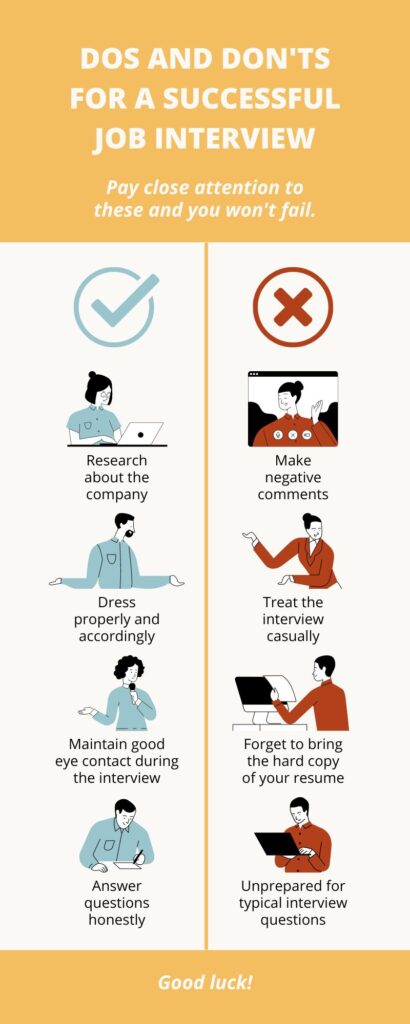Making a career change is a big decision that is often fueled by a variety of factors. While the promise of higher pay and better benefits motivates some people, others are looking for a more fulfilling work experience that aligns with their values and passions.
Most times, a desire for personal growth and professional development can also play a role in promoting a job change. It is necessary to be ready to answer why you have opted to apply for a specific job when you are getting ready for an interview for that position.
The hiring manager will ask you the reason for leaving a job when you apply for any position in their company and you should provide a good reason for job change otherwise you will not be considered eligible.
Why Do They Ask About Job Change Reasons?
Interviewers want to know why you are looking for a new job so they can figure out if you will be a good fit for their organization/company and if you are trying to improve your skills and move up in your career.
Second, they want to know what was the main issue behind your resignation in order to make sure that issue does not exist in their company as well. Employers ask about job changes reasons for several reasons.
- They want to assess the stability and reliability of a candidate
- Employers want to understand a candidate’s career goals and motivations
- Employers may ask about job change reasons to identify any potential red flags
Main 10 Reasons For Leaving a Job
There are various reasons someone might leave a job.
1. Financial Reason
Let’s be honest: we work for money. And if the pay is not good enough to meet your expenditures, you will naturally apply for a better job opportunity.
If you have applied for the same reason, you should confidently answer and explain that you are not getting paid enough money in your current job position.
2. Better Location
You can provide this reason if you are currently working somewhere that is a long distance away from your home, as it is also a valid reason for employment. People prefer to work in the city where they live, and even within the same city, they prefer to work as close to home as possible.
3. Personal Issues
Health or family issues due to which you had to leave your job, say it clearly because these things come first. Personal one that requires careful consideration of one’s values, goals, and priorities.
You can give them an overview of your problem, including specifics about how it made you feel and when it finally went away, to guarantee them you have successfully resolved the matter and now you are ready to work.
4. Career Goals
Even if your job is perfect but still not aligned with your personal goals for your career, you will consider leaving it at some point.
If you have stopped your professional development in the company and have nothing to learn there, discuss this issue in the interview and you have to be very clear about it.
As a result, if the employer hires you, they will know your professional goals and the fields in which you wish to advance your skills.
5. No Promotion
Imagine you worked really hard for so many years and completed all the targets but you didn’t get rewarded for your efforts. You will surely feel frustrated and disappointed and you will never be as loyal to that organization as you were in the past.
Here, express your grievance in a polite manner as you didn’t get the well-deserved promotion despite working for several years.
6. Work-life Balance
Work-life balance is often cited as a reason for leaving a job, particularly if an individual feels they cannot manage their work responsibilities alongside their personal commitments.
When individuals feel overwhelmed by their workload or are constantly required to work long hours or take work home with them, they may become stressed and burnt out, which can have negative effects on their health, relationships, and job performance.
Moreover, if an individual feels that their employer is not supportive of their need for work-life balance, they may be more likely to seek employment elsewhere.
7. Poor Management
Most people resign because of the reason for poor management. People switch their jobs when possible because of some boss, managers, or supervisors exhibiting rude behavior.
Workers leave not just because they lack confidence in their bosses, but also because they realize there is no chance of advancement while working for them.
8. Better salary or benefits
Many people change jobs to earn a higher salary or to receive better benefits such as health insurance, retirement plans and paid time off.
9. Work Arrangement
If you are about to move outside of the country or going to have a child and want to work remotely, but your current employer is not allowing you to do so, you will naturally apply for a remote job opportunity.
So, provide this reason as it is enough to leave a job if you are getting what you want.
10. Overqualified
If you possess some higher skills or higher level of qualification but your job role is just limited to the basic level clerical/office work, then you can say that you are overqualified for your job role.
You cannot use and upgrade your potential skills or expertise while staying in the same position. That’s why you want to leave that job and work in a new job role.
Tips for Job Interview Preparation

reason for leaving the company
As we discuss there are several reasons to leave a company. Below is some Reason For Job Change.
- Lack of opportunities for growth
- Poor work-life balance
- A negative work environment or toxic culture
- Change in personal circumstances
- Unfulfilling work
- Lack of job security
- The desire for a new challenge
- Conflict with colleagues
- Lack of autonomy or control
- Burnout or stress
reason to switch job
- Limited or no opportunity for creativity or innovation
- Deteriorating industry or economic conditions
- Lack of respect or trust between employees and management
- Inability to use or develop existing skills and talents
- Health issues or disabilities that require a different work environment or accommodations
- Lack of transparency or honesty from management
- Favoritism or nepotism within the company
- Personality conflicts with colleagues or supervisors
- Limited work flexibility, such as rigid schedules or no work-from-home options
- Personality conflicts with colleagues or supervisors
FAQs
What are the Reason for Job Change Examples?
- Overqualification.
- Lay-offs.
- Financial Reasons.
- Job Location.
- Personal issues.
- Career Goals.
- No Promotion.
- Work Arrangement.
- Poor Management.
why to change the job?
There could be many reasons for leaving a specific job including financial reasons, personal reasons, and any dispute with a coworker/employer.
How to answer reason for job change?
When answering the question about the reason for a job change, it’s important to provide a truthful and professional response that highlights your motivation for seeking new opportunities.
How to explain reason for job change?
You should try explaining your job change reason with a valid answer. For example, if you want to change your job for the sake of more salary, elaborate that you are not getting any promotion despite working for several years and that’s why you have applied for a job with a handsome salary package.
Conclusion
No matter for which position you are applying right now, the interviewer will surely ask you the reason for the job change.
In an interview, you should not be hesitant while providing the true reason for changing a job whether it is related to your financial condition or any dispute with an ex-employer.
However, you should always keep your response as positive as it can and avoid using any negative words regarding your previous job. We hope you enjoy this article Reason For Job Change and also share it with your friends and family.
Read More 32 Reasons To Learn English | Why English Is Important Read more why to change job

